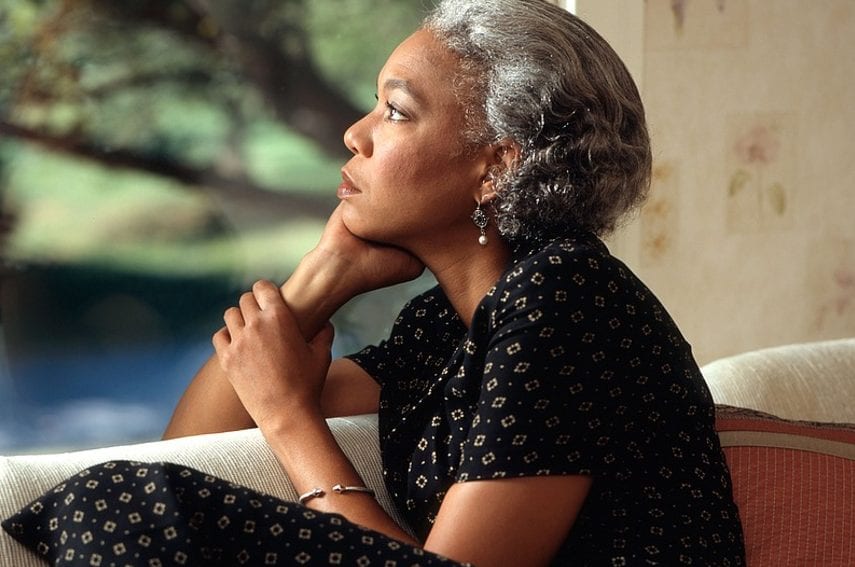Is OCD Caused by Childhood Trauma?

Coping with OCD caused by childhood trauma isn’t easy. At times you may feel like you’re managing, but other days, you might feel like you’re about to fall apart. By gaining a better understanding of what OCD is, as well as the connection between OCD and childhood trauma, you will be able to address your past and move forward toward a healthier life.
You probably hear people claim to “be OCD” on a regular basis, in casual conversation and even as the punchline to jokes. This cultural flippancy makes it easy to downplay the severity of obsessive-compulsive disorder, even if you struggle with it yourself and know what it’s like to actually live with OCD. One of the potential causes that has been the focus of recent research in the field is childhood trauma. And given that this is usually just one of many contributing factors, finding proper treatment can be difficult.
For those struggling with OCD caused by childhood trauma, attending comprehensive residential treatment is key to paving an effective road to recovery. Addressing and managing trauma is something that can be very difficult to do on your own. Many people simply accept the effects that their trauma exerts on them and do their best to live with it, not realizing that there are options that can help them cope in a healthier manner. To do so, you need the tools and help offered by an in-depth treatment program.
Understanding What OCD Is
Obsessive-compulsive disorder, also known as OCD, is defined by obsessive, negative thoughts that lead to distress and anxiety. In order to minimize the stress created by their negative emotions or stop their obsessive thoughts, people conduct repetitive, time-consuming actions.
Some common symptoms are:
- Interruptive or unwanted thoughts, mental images, and urges
- Feeling like you have to check something, often multiple times (i.e., checking to ensure your house door is locked, even if you just locked it)
- Fear of germs, contamination, or illness
- Fear that something bad will happen if you don’t act on compulsions
- Hoarding, and anxiety at the thought of throwing items away
OCD can manifest in many different ways. Some people are obsessed with ordering objects in a certain way, while others are overwhelmed by fears of harming someone they love. You might be so used to living with it that you have accepted its effects, but there are many ways that you can address its causes and take control of it. While it is believed to be caused by a combination of various genetic and environmental factors, one potential cause that has been the focus of recent research is childhood trauma.
The Connection Between OCD and Childhood Trauma
Many studies have solidified the link between OCD and childhood trauma. A theory proposed by psychologist Stanley Rachman suggests that people are more likely to experience obsessions when they are exposed to stressful situations. The theory also suggests that these thoughts are triggered by external cues. And when it comes to compulsions, Rachman believed that they occur when a person believes they have a responsibility to prevent unwanted events. In the case of childhood trauma, a person might respond with compulsions that they believe will prevent these events.
Other research shows that traumatic events primarily cause psychological symptoms like “repeated and unwanted re-experiencing of the event, hyperarousal, emotional numbing, and avoidance of stimuli (including thoughts) which could serve as reminders for the event.” While most people will experience these symptoms at some point in their lives, they typically fade away after a few months. But many experience them for years after the traumatic event. Some experts believe that these people could be living with OCD or PTSD.
And it makes sense: Looking at cognitive-behavioral models of PTSD reveals many similarities to similar models of OCD. Recent research even suggests that these disorders exist on the same continuum. Although studies continue to shed light on the causes and effects of this disorder, many therapists are unsure of how to approach people with childhood trauma and OCD. For this reason, a comprehensive treatment program is often necessary.
Begin Your Recovery Journey.
877-727-4343Addressing Your Past to Move Forward
Trauma-related disorders are particularly tricky to treat. When you’re dealing with such delicate memories that can have many kinds of ripple effects on the psyche, you need to have experience dealing with the causes and effects of these experiences. Dealing with your trauma through therapy is one thing, but outside the context of a comprehensive program, you probably won’t get far. Insight is necessary, but to truly address your childhood trauma and its link to your OCD, a combination of treatment modalities is ideal. This is especially true for people who don’t respond to insight-based therapies (which, in the wrong hands, can even make symptoms worse).
In a comprehensive residential treatment program, a combination of medical diagnosis and a personalized recovery plan will address every angle of your mental health struggles. There is no one-size-fits-all solution, meaning your path to healing will be different from other people’s. Commonly used OCD treatments include a specific type of CBT called Exposure and Response Prevention (ERP), antidepressants, and holistic therapies like yoga and meditation.
At the end of the day, addressing the complex nature of mental illnesses like OCD and the trauma tied to them is best accomplished in a residential setting. It will be a tough road, but through the help of professional guidance, peer support networks, and treatments that work best for your unique struggle, you will be able to come to terms with your past and begin moving toward the future.
Bridges to Recovery offers comprehensive treatment for people struggling with mental health disorders and childhood trauma as well as co-occurring substance use disorders and eating disorders. Contact us to learn more about our renowned Los Angeles programs and how we can help you or your loved one start on the path toward healing.






